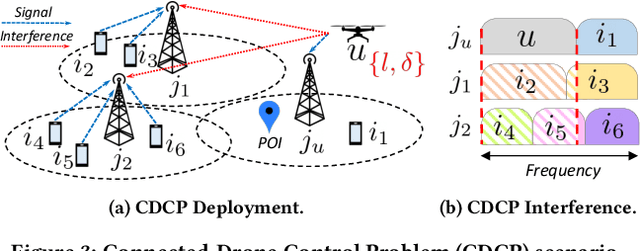Streaming From the Air: Enabling High Data-rate 5G Cellular Links for Drone Streaming Applications
Paper and Code
Feb 02, 2021



Enabling high data-rate uplink cellular connectivity for drones is a challenging problem, since a flying drone has a higher likelihood of having line-of-sight propagation to base stations that terrestrial UEs normally do not have line-of-sight to. This may result in uplink inter-cell interference and uplink performance degradation for the neighboring ground UEs when drones transmit at high data-rates (e.g., video streaming). We address this problem from a cellular operator's standpoint to support drone-sourced video streaming of a point of interest. We propose a low-complexity, closed-loop control system for Open-RAN architectures that jointly optimizes the drone's location in space and its transmission directionality to support video streaming and minimize its uplink interference impact on the network. We prototype and experimentally evaluate the proposed control system on an outdoor multi-cell RAN testbed. Furthermore, we perform a large-scale simulation assessment of the proposed system on the actual cell deployment topologies and cell load profiles of a major US cellular carrier. The proposed Open-RAN-based control achieves an average 19% network capacity gain over traditional BS-constrained control solutions and satisfies the application data-rate requirements of the drone (e.g., to stream an HD video).
 Add to Chrome
Add to Chrome Add to Firefox
Add to Firefox Add to Edge
Add to Edge